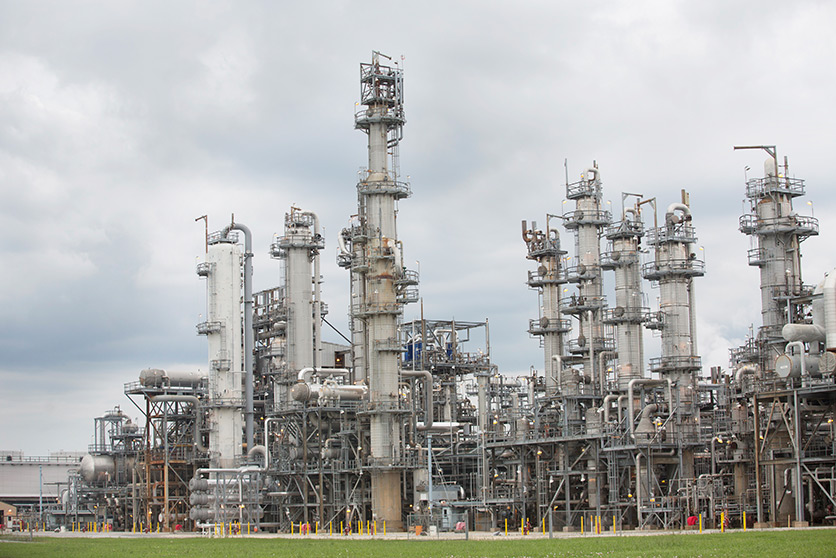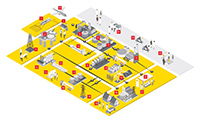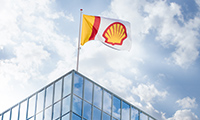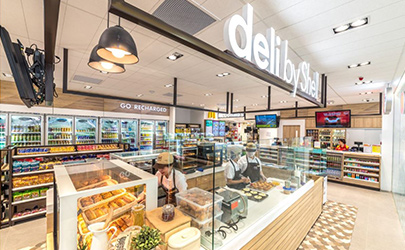Chemicals

Chemicals is one of Shell’s Leading Transition themes. Petrochemicals are vital to our evolving modern society, being found in offices, cars and homes. Demand for petrochemicals is set to grow above GDP growth levels, with chemical products expected to play a role in lowering the carbon intensity of the global economy. They are less resource-intensive compared with alternatives and they are lighter, which enables energy efficiencies. The Chemicals business will help Shell thrive through the energy transition.
Chemicals produced by Shell are used by customers to manufacture thousands of final products such as: furniture, clothes, household appliances and packaging, shampoo and smartphones. Many of them use fewer resources and have a lower carbon footprint than the glass, paper or metal products they replace. High-performance insulation, synthetic textiles, and low-temperature detergents, for instance, all save energy and avoid CO2 emissions.
Our plants produce a range of base chemicals, including ethylene, propylene and aromatics, and intermediate chemicals such as styrene monomer, propylene oxide, solvents, detergent alcohols, ethylene oxide and ethylene glycol. We have the capacity to produce around 6.5 million tonnes of ethylene a year. In 2019, we supplied more than 15 million tonnes of petrochemicals to around one thousand industrial customers worldwide.
We operate 10 chemical plants worldwide and have a global balance of locations, feedstocks and products that allows us to capture commercial opportunities and get through cycles of lower margins. We use oil from Shell refineries in the US Gulf Coast, the Netherlands, Germany, Singapore and Canada. Our joint venture complex in China benefits from deep integration with the adjacent China National Offshore Oil Corporation (CNOOC) oil refinery.
We are making good progress in the construction of our major petrochemicals complex in Pennsylvania, USA. Once construction is completed, the site will have 1.6 million tonnes per annum polyethylene capacity and will use ethane from the low-cost shale gas basin in North America to produce polyethylene at scale. Commercial production is expected to begin early this decade.
We are a founding member of the Alliance to End Plastic Waste, which intends to invest about $1.5 billion over five years to help end plastic pollution. The alliance is a major effort by global companies like Shell to minimise and manage plastic waste, and to develop solutions for used plastics by helping to create a circular economy.
In 2019, we announced our ambition to use 1 million tonnes of plastic waste as feedstock at our global chemical plants by 2025. This is a big step towards building a circular economy by using plastic waste to produce chemicals. The first of our plants to do this in 2019 was Norco in Louisiana, USA, where we successfully used oil made from plastic waste to produce chemicals. We intend to scale up the technology and deploy it at our other chemical plants in Europe, Asia and North America, gradually achieving world-scale production by 2025.
Our Chemicals business is expected to deliver between $2 billion and $3 billion organic free cash flow per year by 2025 at $60 per barrel (real terms 2016) and mid-cycle Downstream conditions, representing a ROACE of around 15%.

Geismar Chemical Plant, Louisiana, USA
 Our businesses and organisation
Our businesses and organisation
 Overall highlights in 2019
Overall highlights in 2019
 Projects & Technology overview
Projects & Technology overview
 Financial data
Financial data
